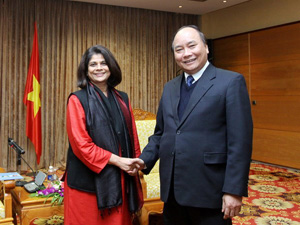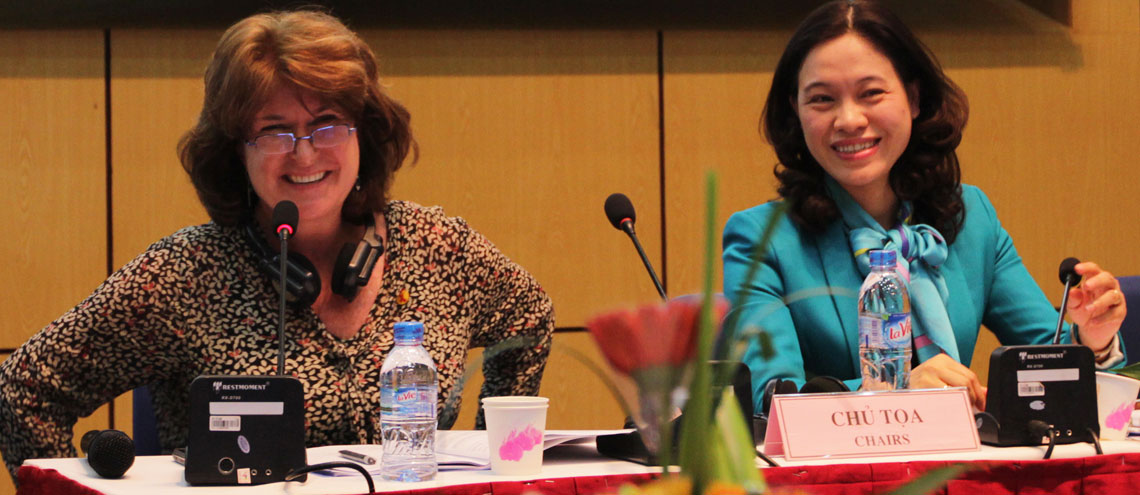UN and donors continue support to Viet Nam in responding to HIV
 Scaling up sustainable, rights-based approaches targeting the people in greatest need is the key to building on Viet Nam’s significant progress against HIV, international partners advocated in a 12 December meeting with senior government officials.
Scaling up sustainable, rights-based approaches targeting the people in greatest need is the key to building on Viet Nam’s significant progress against HIV, international partners advocated in a 12 December meeting with senior government officials.
The Ambassadors and Heads of Agency Informal Coordination Group on HIV, led by UN Resident Coordinator Pratibha Mehta and Canadian Ambassador David Devine, met with Deputy Prime Minister Nguyen Xuan Phuc and senior officials of the National Committee for AIDS, Drugs and Prostitution Prevention and Control to celebrate another successful year against HIV and to strategize for the future.
Speaking at the meeting, Ms. Mehta commended Viet Nam on its new national project on financial sustainability of the HIV response, and encouraged the Government to urgently translate the project into concrete action plans for optimizing the national response. Optimization includes enhancing efficiencies, enhancing domestic and private sector financing for HIV, and focusing on scaling up those interventions that will have the greatest impact on the epidemic. Making wise resource decisions will accelerate the country’s progress to achieve the Millennium Development Goal on HIV and AIDS, Ms. Mehta said.
Ambassador David Devine recognized the Government’s steady transition towards voluntary and evidence-based drug dependence treatment, but emphasized the need to ensure international standards are met and human rights adhered to in the treatment of every patient who is dependent on drugs. He also called for greater access to HIV services for key populations at higher risk of HIV infections to avoid a resurgence of the HIV epidemic.
Deputy Prime Minister Nguyen Xuan Phuc, in his role as Chairperson of the National Committee, expressed appreciation of the technical and financial support provided by the international community in many areas of the national response, including the harm reduction programmes and drug trafficking control. He called for the international community’s continued support on HIV, saying Viet Nam is experiencing economic difficulties despite recently achieving lower-middle-income country status.
The discussion also touched upon other important issues in the national response to HIV, including the need to further expand antiretroviral treatment for people living with HIV and methadone maintenance therapy for people who use drugs, as well as the greater engagement of civil society organizations and the private sector.
Senior officials from the international community and the Government participated in the dialogue, including Minister of Labour, Invalid and Social Affairs Nguyen Thi Hai Chuyen, Vice Minister of Health Nguyen Viet Tien, Vice Minister and Deputy Head of Office of the Government Vu Khac Dinh, PEPFAR Country Coordinator Chris Detwiler, DFID Country Head Jim Carpy, UNODC Country Representative Zhuldyz Akisheva, WHO Representative Takeshi Kasai and UNAIDS Country Director Kristan Schoultz.
Following the meeting, Deputy Prime Minister Nguyen Xuan Phuc hosted a dinner reception for a larger group of representatives of the international community supporting the HIV response in Viet Nam.




